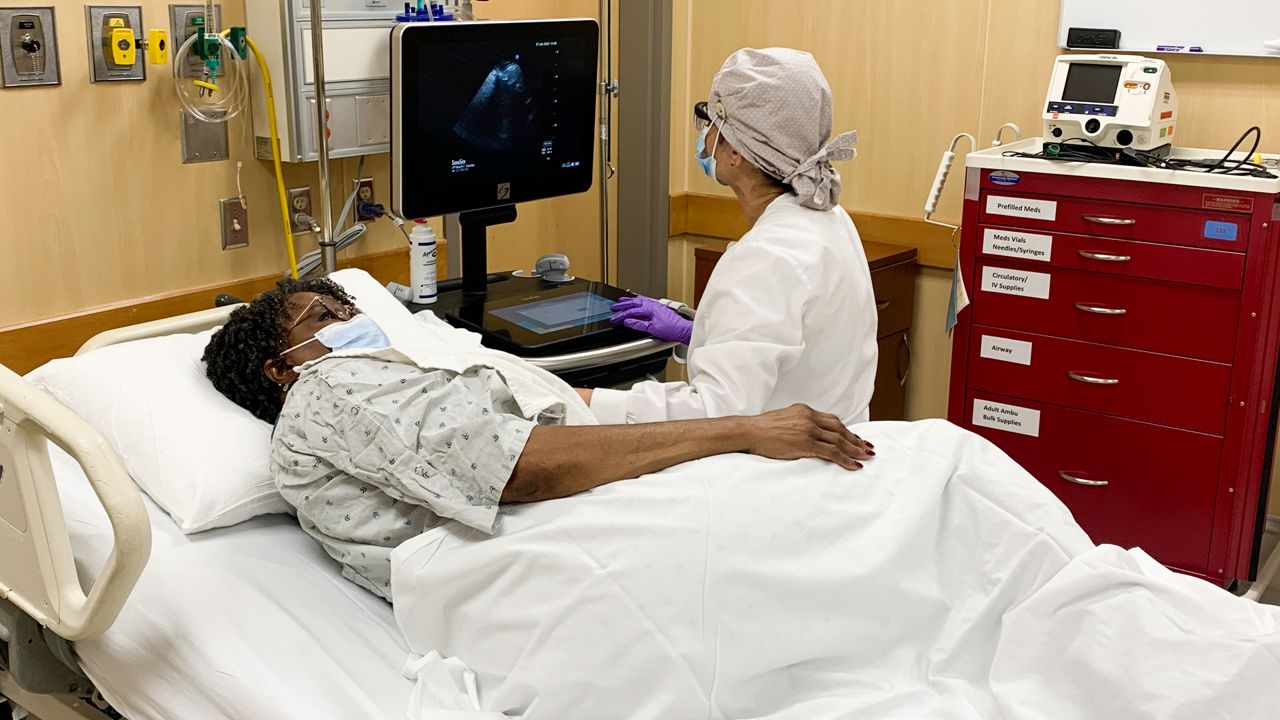COLUMBUS, Ohio — Family members of Black patients with a serious heart muscle disease are at greater risk of developing the disease than families of white patients, according to a new study released Tuesday.
What You Need To Know
- New research supports aggressive screening for the disease
- Family members of Black patients with DCM are at higher risk
- The research was published Tuesday in the medical journal JAMA
The five-year study involved patients with dilated cardiomyopathy (DCM) from a consortium of 25 heart failure programs across the country.
Senior author of the study Dr. Ray Hershberger, a cardiologist at Ohio State University Wexner Medical Center, and colleagues reported their findings in the Journal of the American Medical Association on Tuesday.
“For every patient who is diagnosed with dilated cardiomyopathy, there are members of their family who are at risk,” said Hershberger, who is the director of the Division of Genetics at Wexner.
The condition is among the most common heart diseases. It causes an enlarged left ventricle and impacts the heart’s ability to pump blood.
It's frequently caused by an inherited gene mutation. The study’s findings indicated that 39% of Black patients have at least one first-degree family member (child, sibling or parent) with DCM. For white patients, the estimated rate was 28%.
The disease is not always inherited. It can be caused by a heart attack, or artery disease.
Hershberger said they are not sure why Black family members are at greater risk. “It could be from differences in genetics, comorbidities or social determinants of health,” he said.
Black patients and their family members have been underrepresented in previous studies of the condition, the researchers said.
With this study, 43% of the 1,220 patients were Black. The study also enrolled 1,693 first-degree family members of the patients.
Hershberger said there are treatments that can slow disease progression for patients with DCM if the disease is caught early before it progresses.
The new research supports first-degree family members being screened for the disease, which involves receiving an echocardiogram, Hershberger said.
Black patients who develop the condition are at higher risk for heart failure-related hospitalization and death, the researchers said.
“It’s critical to identify those who have the gene mutations, screen them regularly for disease development and begin treatment as early as possible,” Hershberger said.




